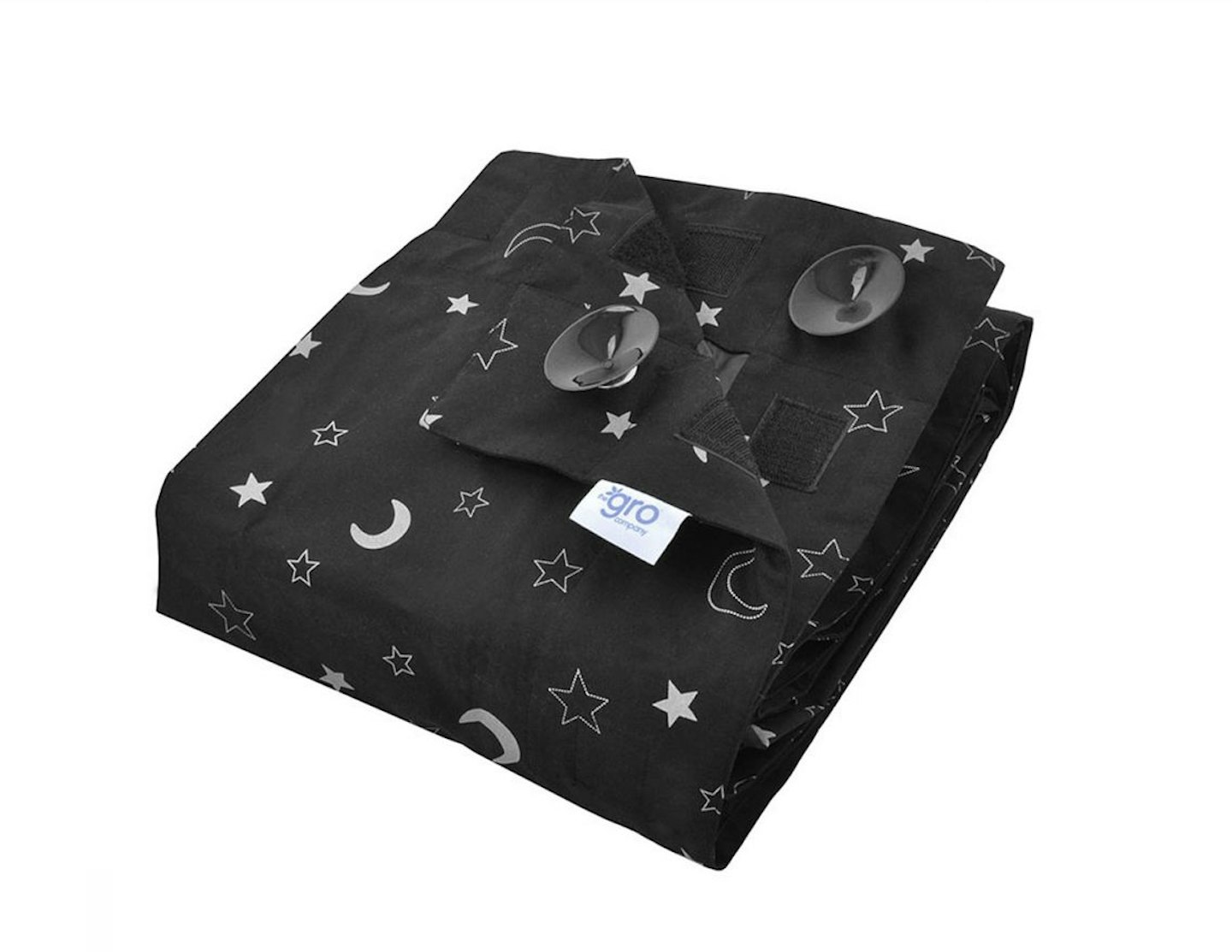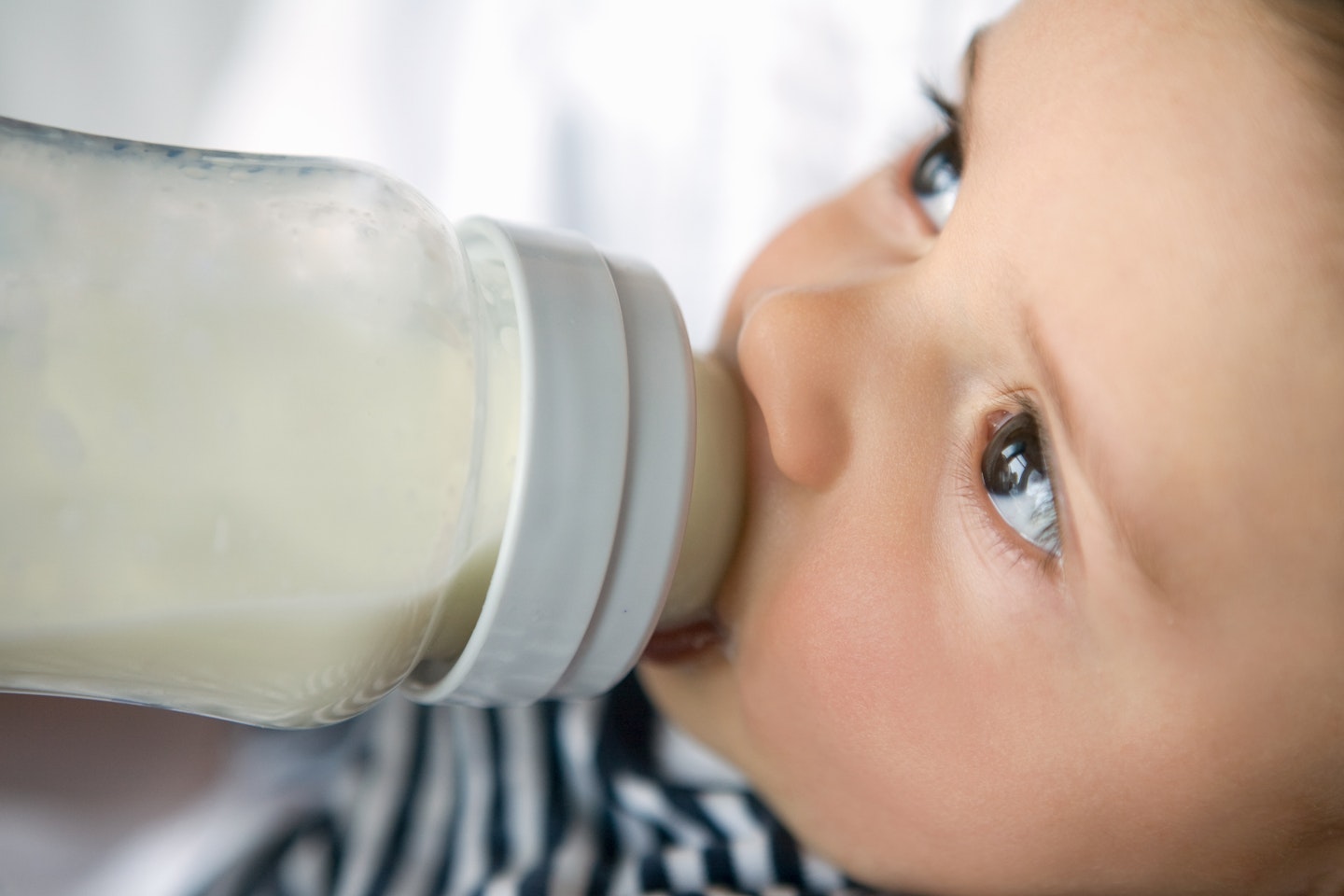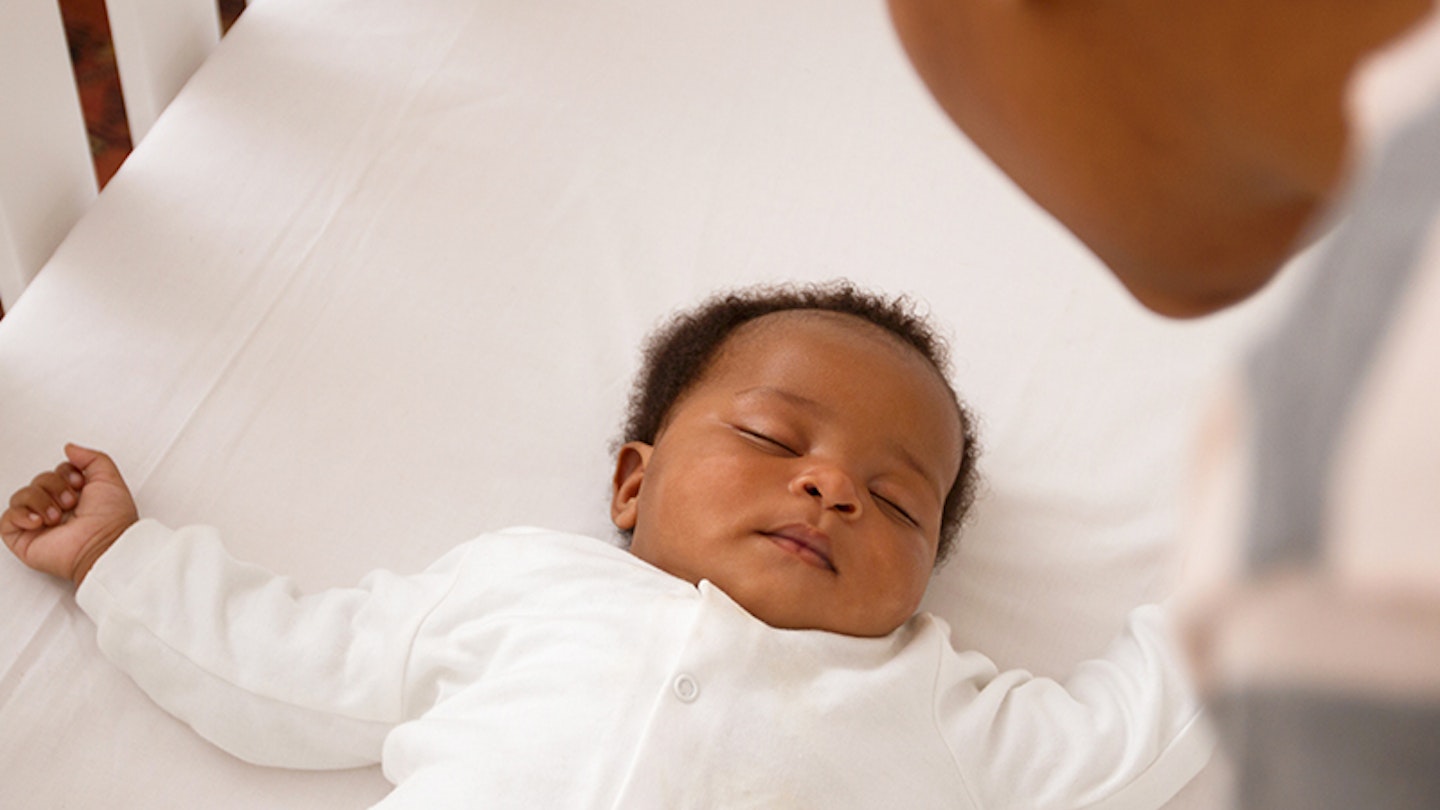As any new parent will tell you, one thing you'll very quickly start obsessing over when you bring baby home is how much sleep they're getting!
From the length of their sleep sessions to those funny little noises, here’s what to expect from those first six months and beyond...
An age by age guide to baby sleep
Use the interactive baby sleep chart below to find out how often your baby should be sleeping at night, plus duration of naps, how many naps they should be having on average, and how long they should go between naps according to their age.
This chart is based on babies' natural sleep patterns, through extensive research charting thousands of baby sleep patterns.
Understanding the baby sleep chart:
Firstly, before looking at the chart reading and bursting into tears because your baby isn't doing this, remember that all babies are different and this is just a guideline to help you see what babies usually do, and to help you plan a baby sleep schedule.
If your baby was premature then start when he reaches his birth date. Until then, follow naps every 45 mins-1 hour, 6 naps, 7-9 hours sleep per day, 19-21 hours total.
What if my baby isn't sleeping?
If your baby is waking often in the night and hardly napping in the day, he could be suffering from a medical issue. This would usually besilent reflux or reflux(GORD), or dairy intolerance, usually cows’ milk protein allergy (CMPA). These will stop your baby from sleeping well, as he is uncomfortable and in pain. Talk to your GP if your baby is showing sympoms of any of these issues. Don't worry though, these are very common in babies and can be solved quickly.
There are lots of forums and mummy blogs that can help reassure you that you aren't the only one whose baby is suffering from one of the above conditions.
Thirdly, it can be really tough when your baby doesn't sleep and it can be something as simple as where they are sleeping and when.
There is only a 15-minute window of opportunity from your baby showing you tired signs, to then being overtired and grumpy. When this happens that's when you may have to use a 'sleep prop' to get your baby to sleep.
This is something your baby has before they go to sleep, like rocking, a dummy, or feeding to sleep. Some babies also fall asleep while going out in the pram or car seat, so this can be a useful prop when they're struggling to drift off. However, if he has it every time he goes to sleep, when he wakes into a light sleep at night he'll need that prop again, so it's best to try to get your baby to sleep without relying on a prop.
Newborn baby sleep patterns
So, from a sleep point of view, what can you expect from these first few weeks?
Well, right now, she‘ll be snoozing. A lot. We’re talking around 16 to 18 hours in every 24, although this varies and may be different if your baby was premature or there are any medical issues. It’s during this sleep that she’s physically and mentally developing.
Your newborn is adjusting to life outside of your womb and it’s pretty exhausting, so she’ll probably be waking every two hours or so for an hour, and then drifting back off.
This will go on through the day and night so, even though she’s enjoying a lot of Zzs, the short bursts mean there’ll be quite a bit of sleeplessness for you. Your baby will need to rehydrate and will wake for feeds.
Some babies may sleep peacefully at this age, while others will make lots of little snuffles, yelps and noises that can sound like crying, so it can be worth just waiting a moment to check she is really crying before you go to soothe her.
Little sounds like this can be caused by some mucus or dried milk in your baby’s tiny breathing passages, the fact that she’s learning to regulate her breathing or because she spends most of her early sleep in the REM stage – basically, the type of sleep that’s light and very active.
These noises are generally nothing to be concerned about, although it may be worth checking with your health visitor or GP if she’s grunting after each breath as this could suggest she’s having difficulty.
Wheezing, gasping or a persistent cough can also be a symptom of reflux or sleep apnea, so if you’re noticing more noise than usual, seek advice.
When your baby’s around two weeks, you can start to teach her the difference between day and night. Keep the light on when you feed her during the day, but then lower them and create a quieter atmosphere during night feeds.
What’s normal between three and six months?
When your baby has grown out of the newborn stage, like many aspects of her development, her sleep style will go through some significant changes.
Three-month baby sleep:
On average, your three month old will sleep for around 10 hours at night and five in the day where she’s awake for an hour or two and then goes back to sleep.
Four-month baby sleep and baby sleep regression:
At the four or five-month mark, there can be a big shift, where you suddenly find her sleeping pattern changes completely and starts waking constantly throughout the night. While experts aren't completely sure why this happens, there's a big development and physical jump around this time which could explain it.
Your baby’s also becoming more aware of her surroundings, so if she wakes in her cot when she fell asleep in your arms, she’ll recognise that she’s somewhere different and may take longer to settle back to sleep.
Fortunately, this phase tends to calm down after a month or so, and
At night, some babies will need a couple of feeds, while others won’t. If yours does, you could try a dream feed while she’s half asleep, although this unsettles some little ones, so see how you get on.
From about four months, your baby starts to show sleep behaviour like an older child - so she’ll probably be quieter and those funny little newborn noises and snuffles may well go. You could also see her moving in her sleep a bit more.
Five-month baby sleep:
Around five months you can start putting a daytime nap and gentle bedtime routine in place.
At this age, there are more pronounced gaps (partial awakenings) between sleep cycles. Think about times you half wake in the night – you might be aware that you’ve woken, but then you drift back off. Any movement is just her settling back to sleep during these transitions.
Six-month baby sleep:
When your baby reaches six months, she’ll be on solids and should be able to sleep through the night, although this varies and depends on her health and size, so you may find she still needs a nighttime feed.
Jo Tantum's top tips to help your baby sleep better:
Tips for your baby to sleep by Jo Tantum
 1 of 7
1 of 71) Try to get your baby to sleep without a sleep prop
Follow the chart guidelines to see when your baby is going to be tired. Try to stop the feeding-to-sleep cycle by having a short feed then cuddles.
 2 of 7
2 of 72) Have naps in the Moses basket or cot
If this is a bit scary, try firstly getting them to sleep with the pram/car seat still.
Check out M&B's round-up of the best Moses baskets
 3 of 7
3 of 73) Get total blackout for baby's room and the pram
This is because babies don't understand they need to close their eyes to go to sleep, so they get over-stimulated by their surroundings and can't switch off. Darkness helps calm them and creates a good trigger for sleep.
M&B loves: Gro Anywhere Blackout Blind, now £19.20
 4 of 7
4 of 74) Soothing sounds can really help
When they are tiny, womb sounds are amazing and can be a miracle to frazzled parents. Later, wave sounds will help. There are lots of apps and machines/toys that make these sounds.
 5 of 7
5 of 75) Always start a good sleep pattern at the beginning of the day
If it goes wrong, start again the next day. Always be consistent. It usually takes 72 hours for a baby to start learning a new routine and a full 7-10 for this routine to become normal. Always persevere - it is worth it.
 6 of 7
6 of 76) Make sure your baby is having enough milk/food in the day
If your 6-month-old baby is having 4 milk feeds and 2-3 meals, then he isn't likely to waking in the night because he's hungry. So see what other reasons it can be. Usual suspects are teething or being poorly.
 7 of 7
7 of 77) Determine what type of cry it is
When your baby wakes in the night, listen for 5 minutes; if your baby is groaning, saying "Mmm", or making rhythmic noises, then this means your baby is in light sleep and trying to settle back. Give him the opportunity and confidence to go back to sleep. If he doesn’t, soothe him so he is; continue this and soon your baby will start self-settling. Always work on naps to get better night sleep.
